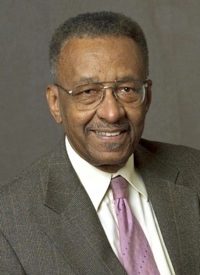
Last week’s column discussed the political trade-offs made by black politicians and civil rights organizations that condemn whole generations of black youngsters to failing schools. Similar political trade-offs in labor markets condemn many blacks, particularly black youths, to high rates of unemployment and reduced economic opportunities. Let’s look at this, starting with a few historical facts.
Today white teen unemployment is about 20 percent, while that for blacks is about 40 percent and more than 50 percent in some cities. In 1948, the unemployment rate of black 16-year-old and 17-year-old males was 9.4 percent, while that of whites was 10.2 percent. Up until the late 1950s, both black teens and black adults were more active in the labor market than their white counterparts. In fact, in 1910, 71 percent of black males older than 9 were employed, compared with 51 percent for whites. As early as 1890, the duration of unemployment among blacks was shorter than it was among whites, whereas today unemployment is both higher and longer-lasting among blacks than among whites.
It would be sheer lunacy to attempt to explain these more favorable employment statistics by suggesting that during earlier periods, blacks faced less racial discrimination. What best explains the loss of teenage employment opportunities are increases in minimum wage laws. There’s little dispute within the economics profession that higher minimum wages discriminate against the employment of the least skilled worker. Such a demographic is disproportionately represented by black teenagers.
Despite these devastating effects, the entire Congressional Black Caucus and President Barack Obama support increases in minimum wages. At the state and local levels of government, there is similar black political support for higher state and local minimum wages, sometimes called “living wages.” It’s not just minimum wages to which black politicians give support; they give support to the Davis-Bacon Act, a Depression-era mega minimum wage law with racist origins. The Davis-Bacon Act mandates that “prevailing wages” be paid on all federally financed or assisted construction projects. It’s a pro-union law that discriminates against both nonunionized black construction contractors and black workers.
During the 1931 Davis-Bacon Act legislative debates, quite a few congressmen expressed their racist intentions, such as Rep. Miles Allgood, D-Ala., who said: “Reference has been made to a contractor from Alabama who went to New York with bootleg labor. This is a fact. That contractor has cheap colored labor that he transports, and he puts them in cabins, and it is labor of that sort that is in competition with white labor throughout the country.” Rep. John Cochran, D-Mo., said he had “received numerous complaints … about Southern contractors employing low-paid colored mechanics getting work and bringing the employees from the South.” Rep. William Upshaw, D-Ga., spoke of the “superabundance or large aggregation of Negro labor.” American Federation of Labor President William Green complained, “Colored labor is being sought to demoralize wage rates.” Though today’s Davis-Bacon supporters don’t use the same language, the racially discriminatory effects are the same.
President Obama, the Congressional Black Caucus, black state and local politicians, and civil rights organizations are neither naive nor stupid. They have been made aware of the unemployment effects of the labor laws they support; however, they are part of a political coalition. In order to get labor unions, environmental groups, business groups and other vested interests to support their handout agenda and make campaign contributions, they must give political support to what these groups want. They must support minimum wage increases even though the increases condemn generations of black youths to high unemployment rates. They must support Davis-Bacon Act restrictions even though those restrictions handicap black contractors and nonunion construction workers.
I can’t imagine what black politicians and civil rights groups are getting that’s worth condemning black youths to a high rate of unemployment and its devastating effects on upward economic mobility, but then again, I’m not a politician.
Walter E. Williams is a professor of economics at George Mason University. To find out more about Walter E. Williams and read features by other Creators Syndicate writers and cartoonists, visit the Creators Syndicate Web page at www.creators.com.
COPYRIGHT 2013 CREATORS.COM
Related article:


